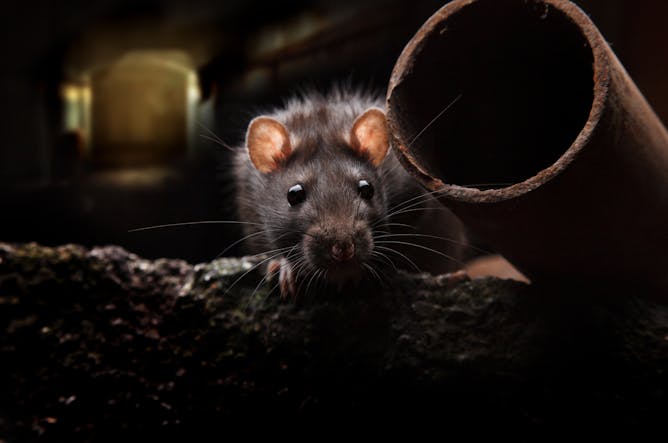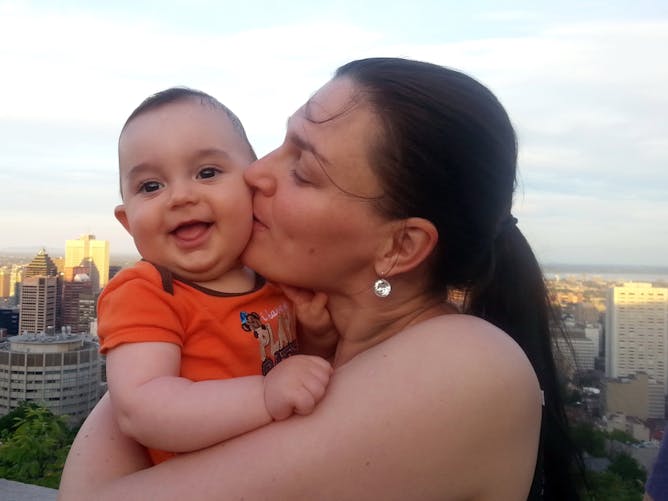|
If you’re reading this newsletter on your phone, you’re likely connected to a 3G or 4G network. When will you be able to access 5G in Canada? Today in The Conversation Canada, Justin Longo of the University of Regina provides an excellent explainer on the politics behind Canada’s future with 5G – and how the next government will need to decide whether it will work with the Chinese telecom giant Huawei.
We also have a new take on why a revamp of Doug Ford’s team in Ontario hasn’t had the desired effect, how the history of U.S. white nationalism can be traced to Barbados and an expert analysis about the too-close-for-comfort relationship between Health Canada and Big Pharma.
We leave you with a tale about rats, the much maligned but largely misunderstood rodents that populate many urban centres. Self-proclaimed “Rat Detective” Kaylee Byers of the University of British Columbia writes about her research and how collecting DNA showed some surprising results about how much (and how little) city rats move around.
Regards,
|

Canadian leaders face high-stakes decisions about 5G technology. In this June 26, 2019, photo, visitors tour the Huawei pavilion at the Mobile World Congress in Shanghai, China.
(Chinatopix via AP)
Justin Longo, University of Regina
The place of Huawei in Canada's 5G network, and the associated national security implications, will be a key issue for the next federal government.
|

Ontario Premier Doug Ford faces the Toronto skyline as he attends a recent event. Ford’s campaign slogan was ‘for the people,’ but his first year in office suggest he’s not paying attention to their anger about his government’s cuts.
THE CANADIAN PRESS/Chris Young
Mark Winfield, York University, Canada
Despite the Doug Ford government's claim that it's now listening to 'the people,' there's little evidence anything has changed.
|

1909 image of a sugar mill, Barbados - a Caribbean island with a history of many colonial slavery laws.
Allister Macmillan/W.H. and L. Collingridge/Schomburg Center for Research in Black Culture
J.M. Opal, McGill University
The vicious ideology that allegedly drove a gunman to kill 22 people in El Paso, Texas last week could be traced back to a tiny island on the eastern fringe of the Caribbean Sea
|

When drug companies and drug regulators, such as Health Canada, sit down together at “pre-submission meetings” this may have a negative impact on public health.
(Shutterstock)
Joel Lexchin, University of Toronto
Drug companies have a job to do and so does Health Canada. When the relationship becomes murky, the public are at risk.
|

Learning about urban rat populations through genetic testing reveals information about their movements through cities.
Shutterstock
Kaylee Byers, University of British Columbia
Genetic analysis shows that urban rats prefer to stay near their relatives; however, some of them migrate. Knowing this could help with pest control efforts.
|

La recherche contemporaine remet en question l'idée selon laquelle une exposition précoce à une seule langue est préférable. À Montréal, la moitié de la population parle anglais et français.
Shutterstock
Adriel John Orena, University of British Columbia; Linda Polka, McGill University
Les bébés «bilingues» apprennent très tôt à reconnaître les marqueurs permettant d'isoler les mots dans une langue ou dans l'autre.
|
Health + Medicine
|
-
Feng He, Queen Mary University of London
Recommended salt intake levels should be lowered further, despite previous contradictory research.
|
|
Science + Technology
|
-
Lubna Omar, Binghamton University, State University of New York
Armed conflict in Syria has been a disaster for the area's cultural heritage. A displaced archaeologist describes what's being lost.
|
|
Culture + Society
|
-
LeeAnne M. Richardson, Georgia State University
W.T. Stead's 1885 account of the process by which wealthy Londoners procured teenagers for sex became a global news story, but the police refused to investigate.
|
|